
The Aboriginal Tasmanians are the Aboriginal people of the Australian island of Tasmania, located south of the mainland. For much of the 20th century, the Tasmanian Aboriginal people were widely, and erroneously, thought of as being an extinct cultural and ethnic group that had been intentionally exterminated by white settlers. Contemporary figures (2016) for the number of people of Tasmanian Aboriginal descent vary according to the criteria used to determine this identity, ranging from 6,000 to over 23,000.
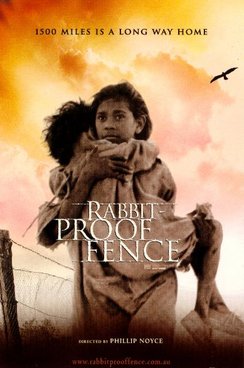
Rabbit-Proof Fence is a 2002 Australian drama film directed and produced by Phillip Noyce based on the 1996 book Follow the Rabbit-Proof Fence by Doris Pilkington Garimara. It is loosely based on a true story concerning the author's mother Molly Craig, aunt Daisy Kadibil and cousin Gracie, who escaped from the Moore River Native Settlement, north of Perth, Western Australia, to return to their Aboriginal families, after being placed there in 1931. The film follows the Aboriginal girls as they walk for nine weeks along 1,500 miles (2,400 km) of the Australian rabbit-proof fence to return to their community at Jigalong, while being pursued by white law enforcement authorities and an Aboriginal tracker. The film illustrates the official child removal policy that existed in Australia between approximately 1905 and 1967. Its victims now are called the "Stolen Generations".

Truganini, also known as Lallah Rookh was an Aboriginal Tasmanian woman. She was one of the last native speakers of the Tasmanian languages and one of the last individuals solely of Aboriginal Tasmanian descent.
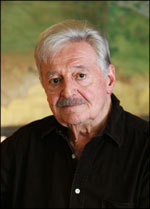
Peter Joshua Sculthorpe was an Australian composer. Much of his music resulted from an interest in the music of countries neighbouring Australia as well as from the impulse to bring together aspects of Aboriginal Australian music with that of the heritage of the West. He was known primarily for his orchestral and chamber music, such as Kakadu (1988) and Earth Cry (1986), which evoke the sounds and feeling of the Australian bushland and outback. He also wrote 18 string quartets, using unusual timbral effects, works for piano, and two operas. He stated that he wanted his music to make people feel better and happier for having listened to it. He typically avoided the dense, atonal techniques of many of his contemporary composers. His work was often characterised by its distinctive use of percussion. As one of the compositional pioneers of a distinctively Australian sound, Sculthorpe and his music have been likened to the role played by Aaron Copland in America's musical coming of age.
Esther Davis is an Australian actress and singer, best known for her roles as Phryne Fisher in Miss Fisher's Murder Mysteries and its film adaptation, Miss Fisher & the Crypt of Tears, and as Amelia Vanek in The Babadook. Other major works include a recurring role as Lady Crane in season six of the television series Game of Thrones, Sister Iphigenia in Lambs of God, and the role of Ellen Kelly in Justin Kurzel's True History of the Kelly Gang.

Deborah Jane Mailman is an Australian television and film actress, and singer. Mailman is known for her characters: Kelly Lewis on the Australian drama series The Secret Life of Us, Cherie Butterfield in the Australian comedy-drama series Offspring, Lorraine in the Australian drama series Redfern Now and Aunt Linda in the Australian dystopian science fiction series Cleverman. Mailman is currently portraying the lead role of Alexandra "Alex" Irving on the Australian political drama series Total Control.
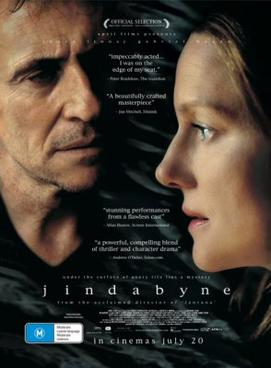
Jindabyne is a 2006 Australian drama film by third time feature director Ray Lawrence and starring Gabriel Byrne, Laura Linney, Deborra-Lee Furness and John Howard. Jindabyne was filmed entirely on location in and around the Australian country town of the same name: Jindabyne, New South Wales, situated next to the Snowy Mountains.
The Fringe Dwellers is a 1986 film directed by Bruce Beresford, based on the 1961 novel The Fringe Dwellers by Western Australian author Nene Gare. The film is about a young Aboriginal girl who dreams of life beyond the family camp that sits on the fringe of white society.
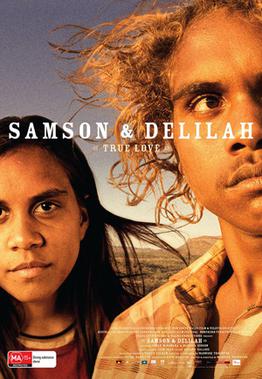
Samson and Delilah is a 2009 Australian drama film directed by Warwick Thornton and starring Rowan McNamara and Marissa Gibson, both young first-time actors. The film depicts two Indigenous Australian 14-year-olds living in a remote Aboriginal community who steal a car and escape their difficult lives by going to Alice Springs. It won many awards, including the Caméra d'Or at Cannes for best first feature.

Exile is a 1994 Australian drama film directed by Paul Cox. It was entered into the 44th Berlin International Film Festival. The film was shot entirely on location in Tasmania.
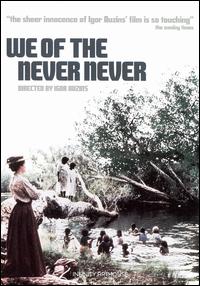
We of the Never Never is a 1982 Australian drama film directed by Igor Auzins and starring Angela Punch McGregor, Arthur Dignam, John Jarratt, and Tony Barry. It is based on the 1908 autobiographical novel We of the Never Never by Jeannie Gunn. It was nominated for five AFI awards and earned one award for best cinematography.

Journey Among Women is a 1977 Australian film directed by Tom Cowan.
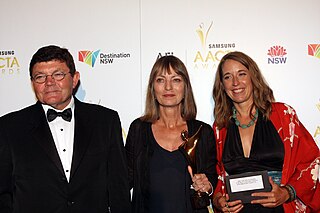
Bob Connolly is an Australian film director, cinematographer and author. He is best known for his documentaries produced over the past 30 years, including The Highlands Trilogy and Rats in the Ranks. More recent films include Facing the Music (2001) and Mrs Carey's Concert (2011). His films have won an Academy Award nomination, AFI Awards, and Grand Prix at the Cinéma du Réel Festival.
The Kettering Incident is an Australian television sci-fi drama program, first broadcast on Foxtel's Showcase channel on 4 July 2016.
The Tasmanian Film Corporation was a Tasmanian statutory corporation founded in 1977 to replace the Tasmanian Government Department of Film Production. However, following a brief period of success it was privatised by Premier Robin Gray in 1983 and shut down progressively over the following decade.

The Nightingale is a 2018 Australian historical psychological thriller film written and directed by Jennifer Kent. The film stars Aisling Franciosi, Sam Claflin, Baykali Ganambarr, Damon Herriman, Harry Greenwood, Ewen Leslie, Charlie Shotwell, and Michael Sheasby. Set in 1825 in Van Diemen's Land, it follows a young Irish convict woman (Franciosi) seeking vengeance against the sadistic English Colonial Force Lieutenant (Claflin) and soldiers who first raped her and then murdered both her husband and infant daughter. She is aided by an Aboriginal Tasmanian tracker (Ganambarr), who similarly seeks vengeance for the murderous Black War against his own people. In addition to being filmed in both English and in the Irish language, The Nightingale is the first motion picture to be filmed in palawa kani, a reconstructed form of the once extinct Tasmanian languages.
Mawuyul Yanthalawuy is an Indigenous Australian educator and actor.
Rebe Taylor is an English-born Australian historian and author specialising in southeast Australian indigenous peoples and European settlement.

The State Cinema is a historic cinema venue located in North Hobart, Tasmania. It was acquired by the US-owned Reading Cinemas chain in November 2019.













